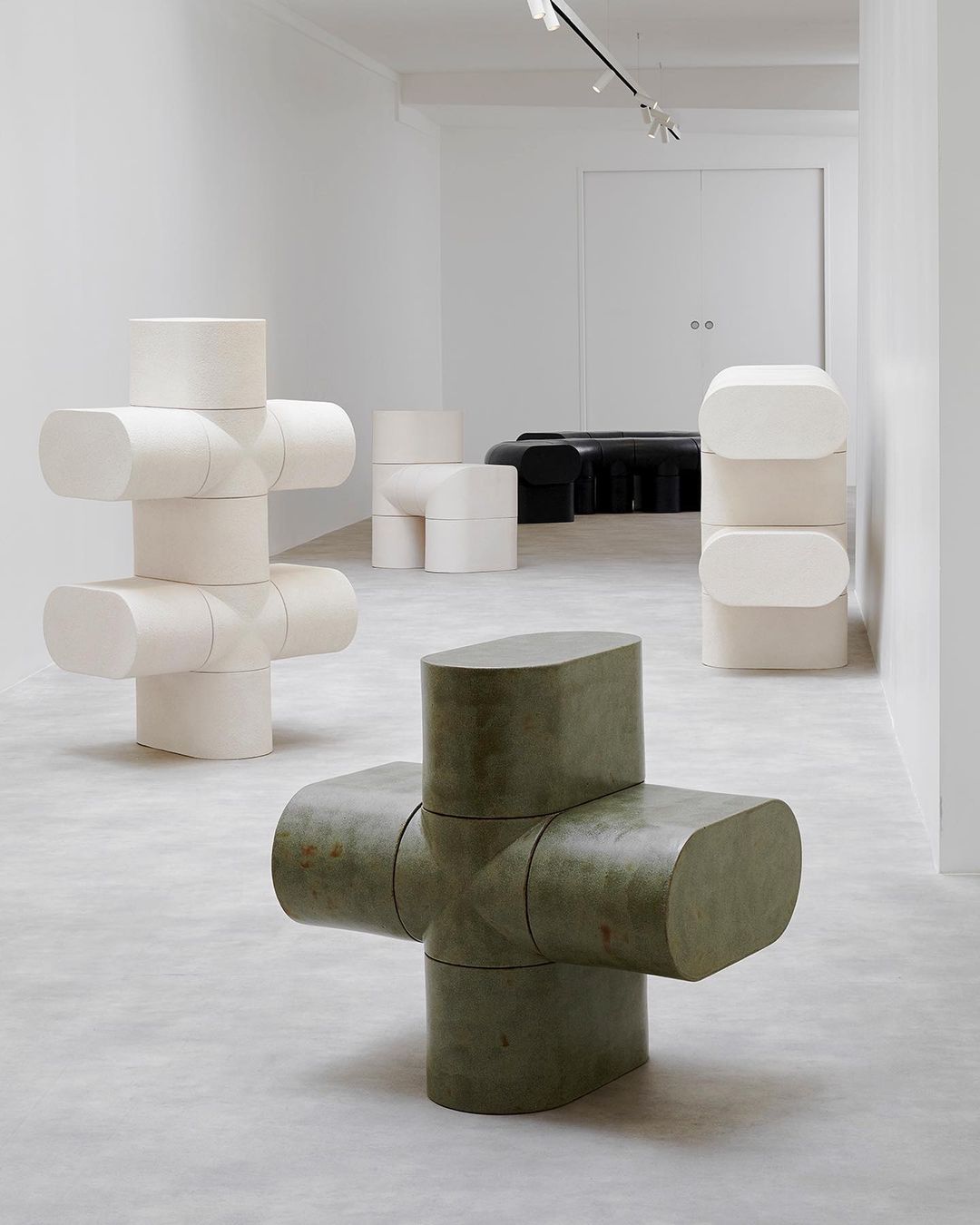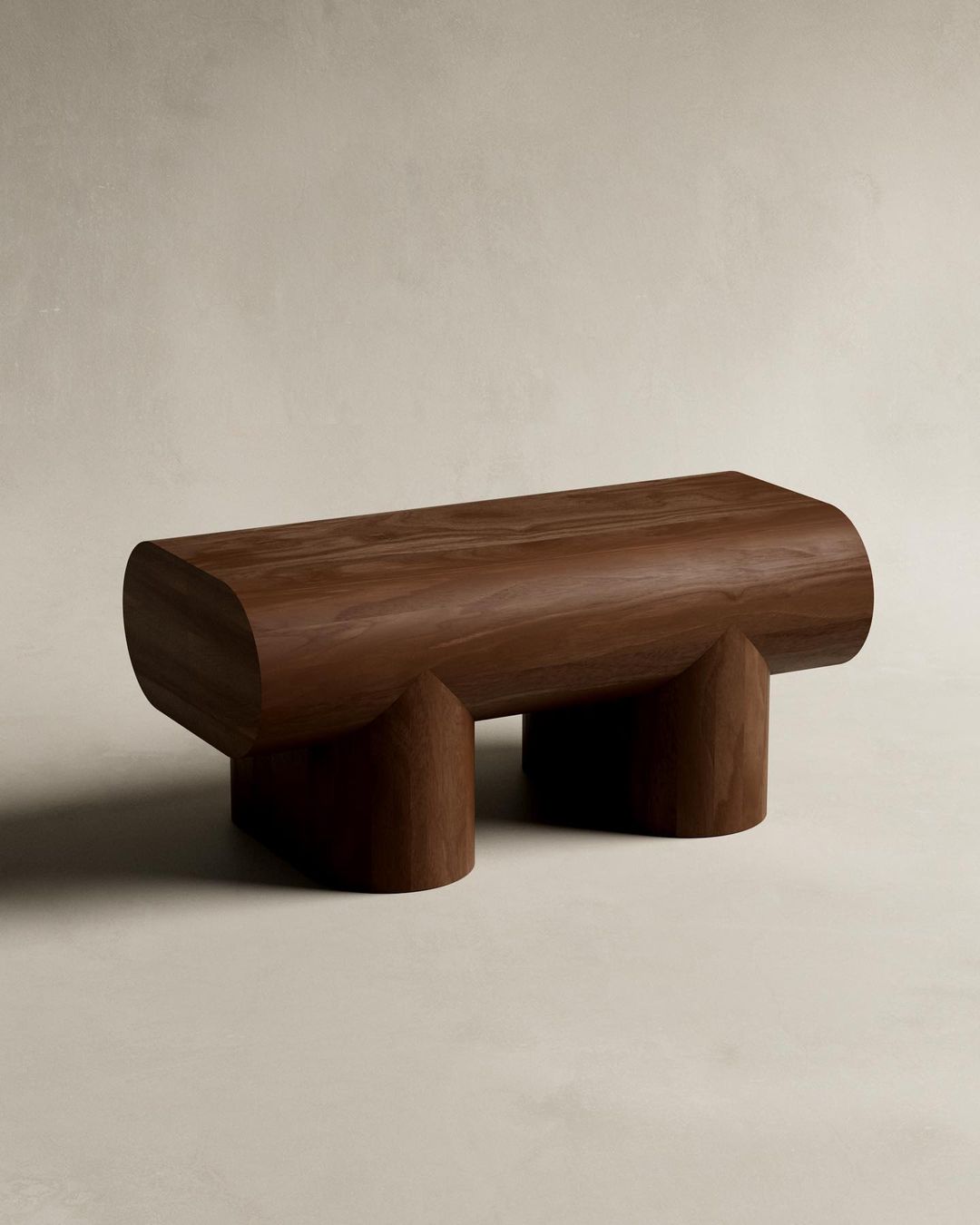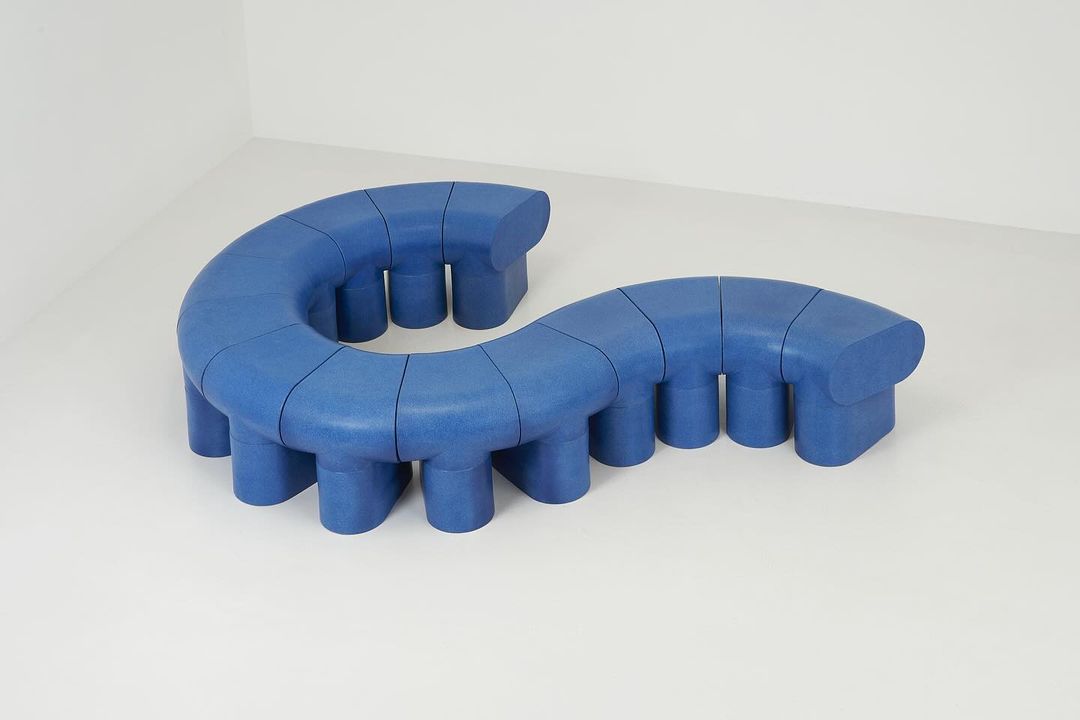
Rino Claessens designs modular ceramic furniture. His work is constructed from basic parts, fired in a small kiln, and then assembled to create bold and impactful forms that shape the spaces they occupy. Using accessible materials and innovative methods to overcome limitations, Claessens has made adaptation a key component to his practice and creativity; fostering a fascination with objects that can be approached in a variety of ways.
Rino Claessens: experimenting with ceramics
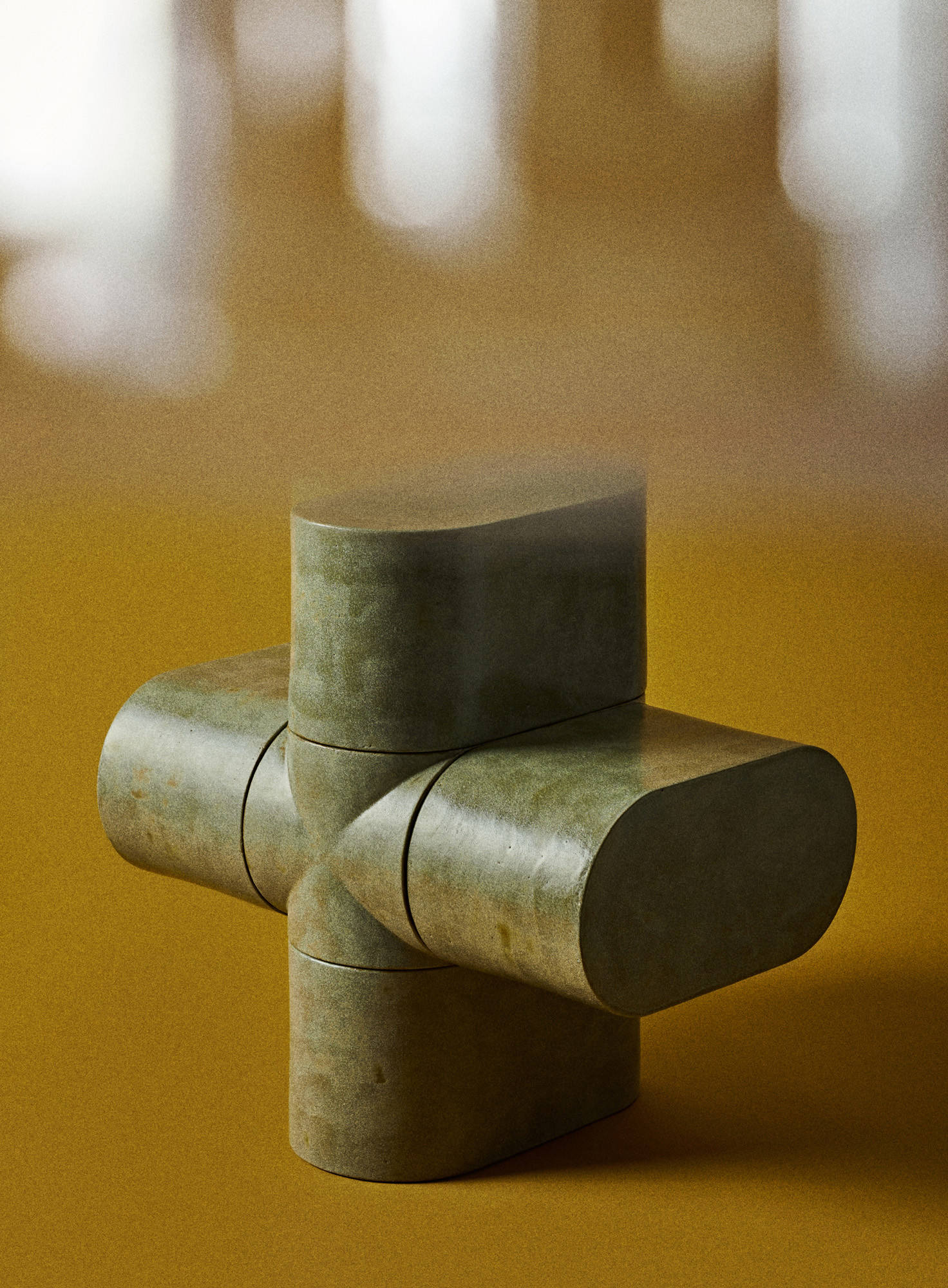
His current project is Modular Ceramics, a collection of large stoneware made using his unique method of fabrication. Conceived as a system to increase Claessens’ freedom as a designer, each piece is built using a different selection from a handful of simple parts, which fit together like ceramic building blocks. Fired separately, and connected using hidden bolts inside, Claessens can use different combinations of modules to produce unique designs.
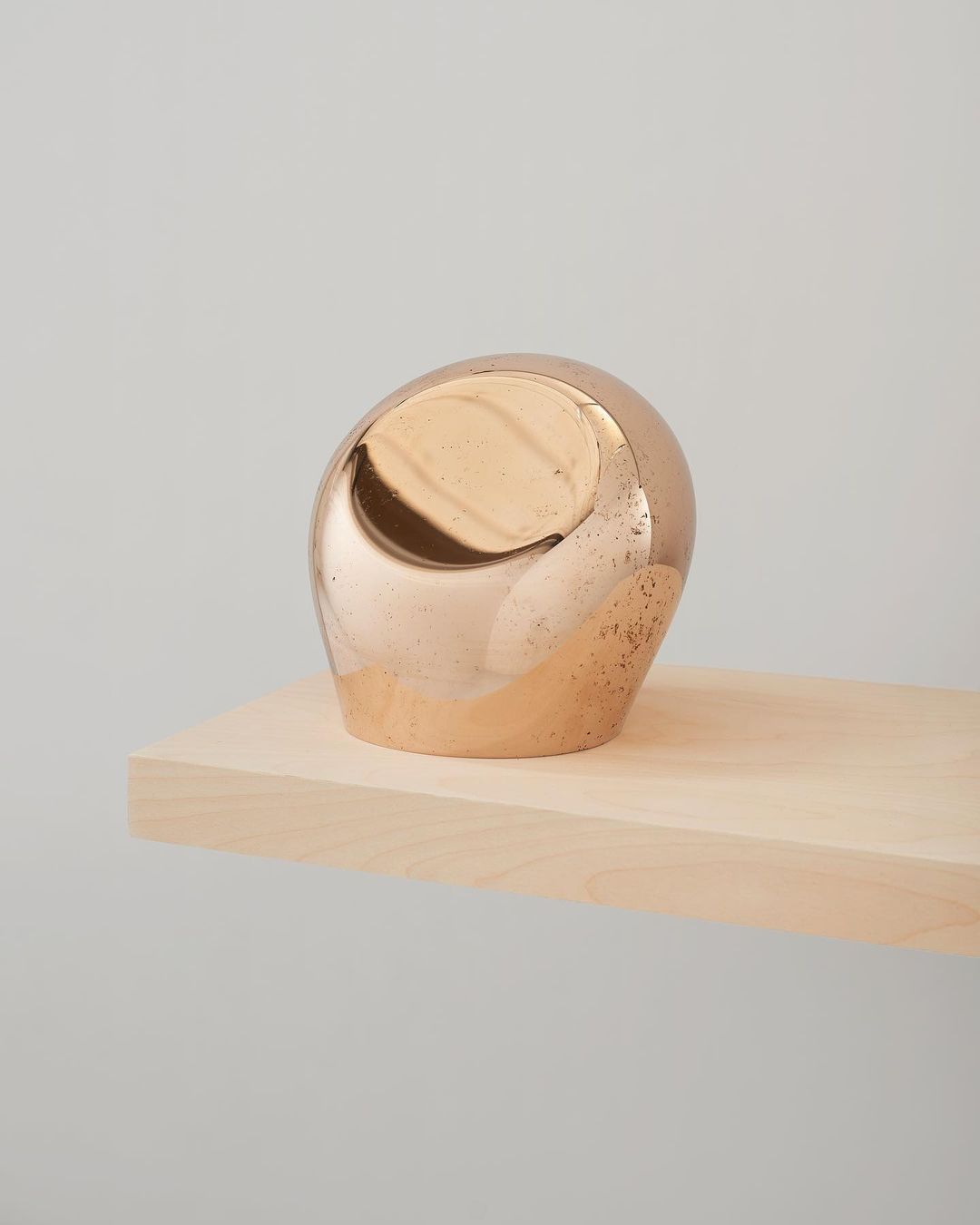
It’s a system born from limitation, and Claessens’ innate ability to work with the tools at his disposal to create on a scale far beyond their traditional use. As he explains: 'I was making all these objects that were essentially the same size as my kiln. So that was really my limit in size… and the type of object that I could make. So I designed this system of shapes that I can connect and repeat, to make an endless amount of objects.'
Claessens first studied ceramics at the Design Academy Eindhoven, before taking a placement at the Ceramic University of Arita, Japan; the historic home of the country’s porcelain industry. Working with materials like kaolin stone, discovered in Japan during the 17th century, Claessens was exposed to all facets of traditional Japanese porcelain production. 'They cover all the aspects there. They have the mines, they cultivate the material; all the steps in the process… it’s really refined work.'
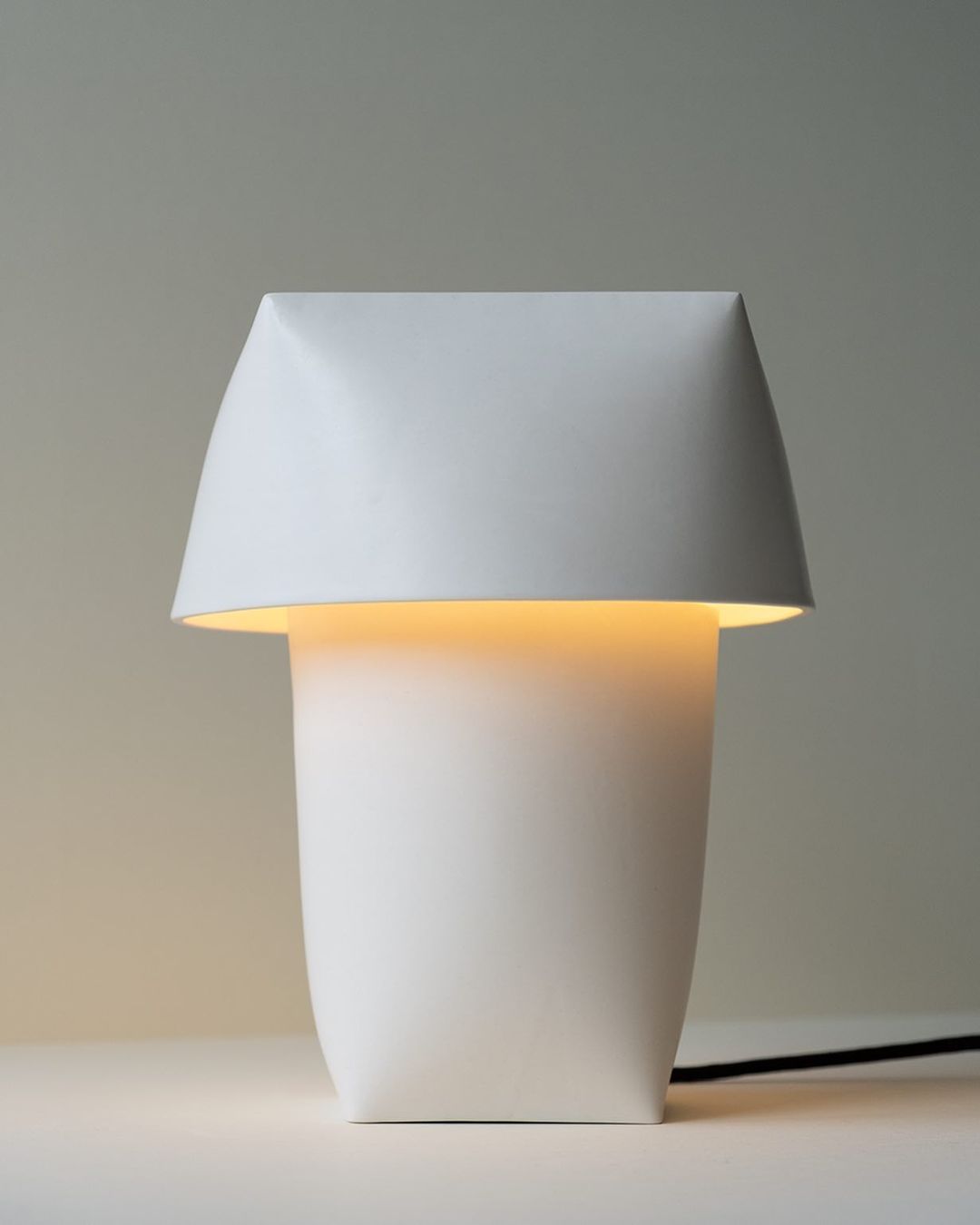
Whether exhibiting in Parisian galleries, or placing his work in domestic settings, a key component to Claessens’ current practice is being able to communicate this creativity to his audience. By interacting with his ceramics and the process of modular thinking, his design encourages people to mentally deconstruct and recombine the many parts of his furniture, unlocking new ideas and ways to interact with space. However, whilst producing inspiring work, Claessens is humble about his ambitions. He remains focused on the practicalities of production, exploring what can be done with his materials, and his personal journey with ceramic design.
'I feel like I’m getting closer and closer to just being able to execute my ideas, as close to the idea as possible. I think that if I can do that, or if I can come close to that, it would be a victory.'
